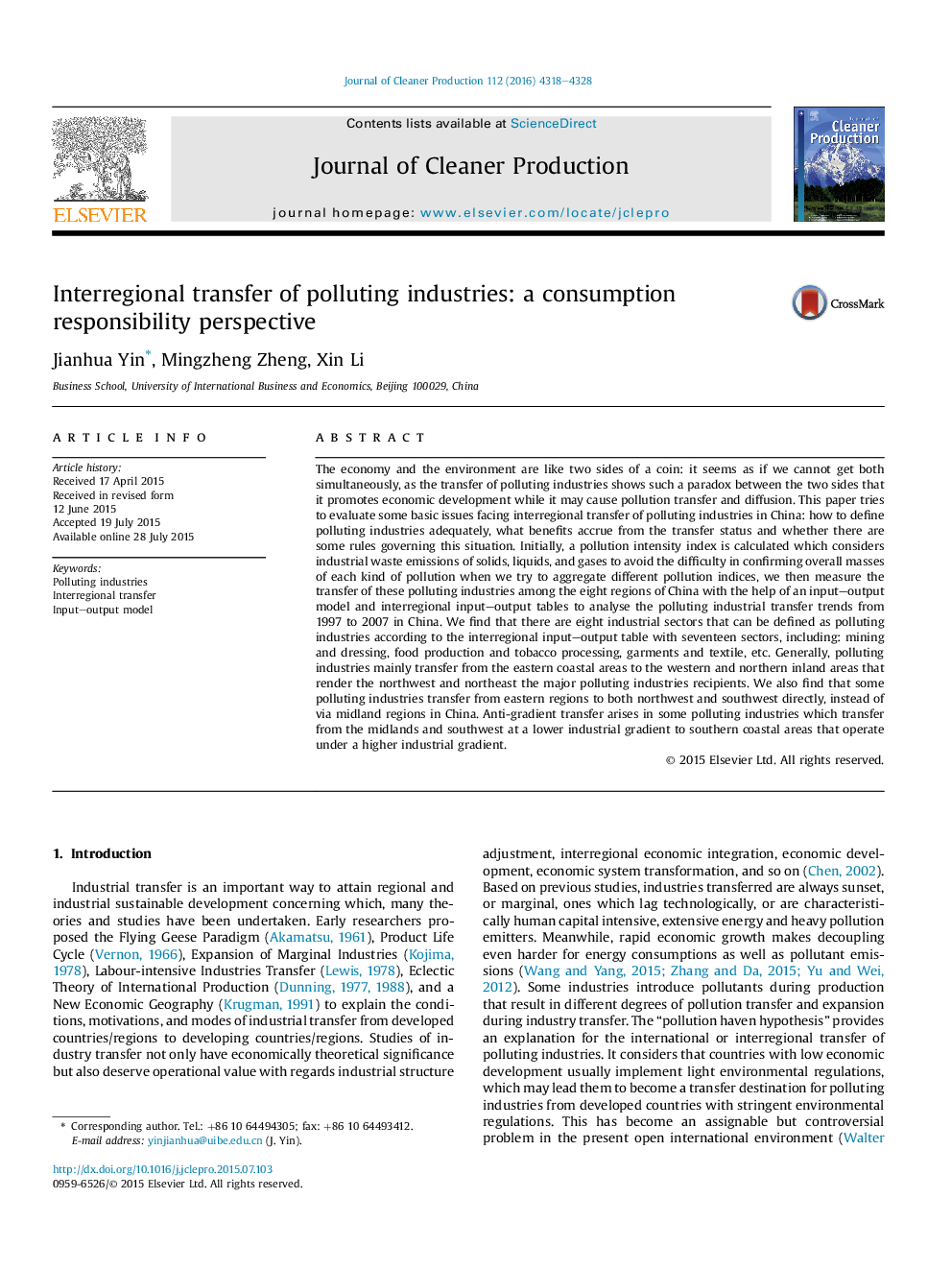| Article ID | Journal | Published Year | Pages | File Type |
|---|---|---|---|---|
| 10687974 | Journal of Cleaner Production | 2016 | 11 Pages |
Abstract
The economy and the environment are like two sides of a coin: it seems as if we cannot get both simultaneously, as the transfer of polluting industries shows such a paradox between the two sides that it promotes economic development while it may cause pollution transfer and diffusion. This paper tries to evaluate some basic issues facing interregional transfer of polluting industries in China: how to define polluting industries adequately, what benefits accrue from the transfer status and whether there are some rules governing this situation. Initially, a pollution intensity index is calculated which considers industrial waste emissions of solids, liquids, and gases to avoid the difficulty in confirming overall masses of each kind of pollution when we try to aggregate different pollution indices, we then measure the transfer of these polluting industries among the eight regions of China with the help of an input-output model and interregional input-output tables to analyse the polluting industrial transfer trends from 1997 to 2007 in China. We find that there are eight industrial sectors that can be defined as polluting industries according to the interregional input-output table with seventeen sectors, including: mining and dressing, food production and tobacco processing, garments and textile, etc. Generally, polluting industries mainly transfer from the eastern coastal areas to the western and northern inland areas that render the northwest and northeast the major polluting industries recipients. We also find that some polluting industries transfer from eastern regions to both northwest and southwest directly, instead of via midland regions in China. Anti-gradient transfer arises in some polluting industries which transfer from the midlands and southwest at a lower industrial gradient to southern coastal areas that operate under a higher industrial gradient.
Related Topics
Physical Sciences and Engineering
Energy
Renewable Energy, Sustainability and the Environment
Authors
Jianhua Yin, Mingzheng Zheng, Xin Li,
